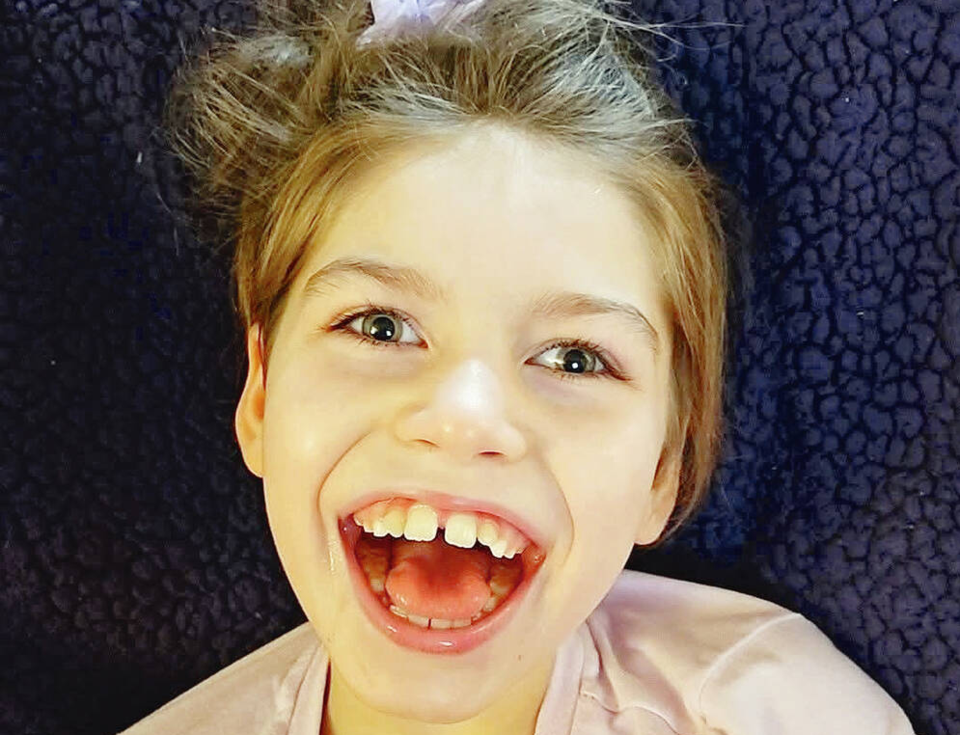The family of Charleigh Pollock, a terminally ill ten-year-old from Langford, has turned to crowdfunding after the province cut off her life-extending medication—a decision that continues to haunt the BC NDP government.
Charleigh’s family had already raised around $70,000 after the government decided last month to stop funding Brineura, the only drug that appears to slow her Batten Disease.
On Monday, they launched a new GoFundMe dedicated just to covering the cost of the drug going forward, which is around $65,000 a month.
“Without this medication, needing to be administered every two weeks, her condition will rapidly deteriorate,” her mother Jori Fales wrote on the site.
“This decision has left the Fales-Pollock family in an unimaginable position, forced to find alternative means to fund Charleigh’s ongoing treatments.
“Leading experts have spoken out in support of Charleigh and warns that removing treatment is ‘akin to a controlled euthanasia’ — and without it, Charleigh faces ‘a horrific death.’”
Health Minister Josie Osborne declined for a third time last week to restore coverage of Brineura for Charleigh, sticking with the drug experts in her ministry who say after six years of coverage the drug now provides little clinical benefit to Charleigh. Her family, care team and international experts argue otherwise.
The decision to cut off a young girl from her medication, against her care team’s wishes, has proven extremely unpopular, battering Osborne’s credibility over several months.
“GoFundMe health care—that’s what B.C. families get under David Eby’s NDP,” said Opposition Conservative Leader John Rustad.
“This government should be ashamed to see Charleigh Pollock’s parents begging online for treatment—this should not be happening in British Columbia. What happens when it’s your kid who can’t get medicine?”
The refusal of the BC NDP to show compassion has also not landed well amongst party supporters, including Port Coquitlam Mayor Brad West.
“Isn’t one of the fundamental roles of elected government to offset the cold, cruel indifference of bureaucracy?” West posted on social media.
“Shouldn’t our elected officials be the ones who humanize the system? Especially when they come from a party that claims the mantle of compassion.
“Otherwise, what’s the point? May as well hand every goddamn decision over to an algorithm.”
If Osborne’s latest rejection is the NDP’s final word on Charleigh, there’s lots of blame to go around for how the system failed the young girl.
Osborne could have got involved earlier, before the situation exploded into a political crisis, to find a behind-the-scenes compromise between the experts and the drug company to keep the medicine flowing for the final couple of years of Charleigh’s life.
Pharmaceutical giant Biomarin, the manufacturer of Brineura, could have offered compassionate funding for Charleigh, out of the US$169 million in net revenue from Brineura sales in 2024, and the US$2.8 billion in revenue for the year.
Charleigh’s local NDP MLA, Ravi Parmar, could have helped champion the family’s arguments directly to the health minister, rather than towing the government line and disappearing when his constituents needed help.
Government’s senior political strategists could have crafted a more nuanced narrative for Charleigh’s case than the rigid ‘science versus politics’ frame—a convenient excuse that allowed politicians to act as passive observers on a case where the science was anything but settled and leadership was needed.
Premier David Eby could have stepped in at multiple points to say that the government would err on the side of mercy for a terminally ill girl, grandfathering her medicine, lowering the political temperature, and crafting any number of other reviews or interventions that would have covered everybody’s political hide while providing a better outcome.
And yet, none of it happened. Week by week, B.C.’s health system, and the elected officials overseeing it, consistently failed Charleigh.
All that’s left now is for ordinary citizens to rally together and do the government’s job for it—taking care of the community’s sickest and most vulnerable.
That should never be the system in British Columbia. And yet, under this government, somehow it is.
Rob Shaw has spent more than 17 years covering B.C. politics, now reporting for CHEK News and writing for The Orca/BIV. He is the co-author of the national bestselling book A Matter of Confidence, host of the weekly podcast Political Capital, and a regular guest on CBC Radio.
🚨New newsletter alert! Stay ahead of the curve in B.C. politics. Get expert political analysis delivered straight to your inbox, plus inside scoops and other stories from across the province. Sign up here for the Capital & Coast newsletter



